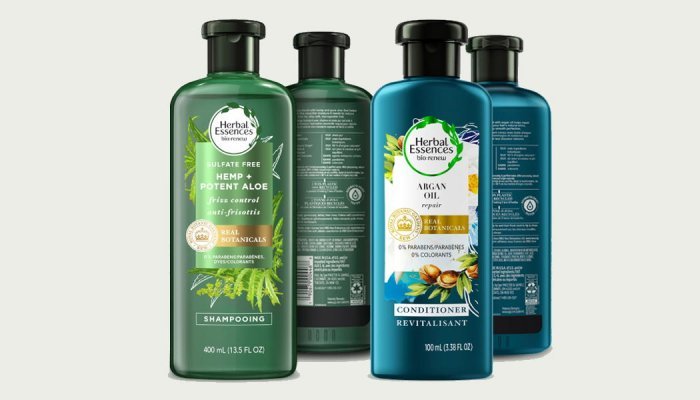
Decreasing the use of virgin plastic
This November, the brand has started introducing five shampoo and conditioner collections in primary packaging made from Eastman Renew resins with 50% certified recycled plastic. Five Herbal Essences bio:renew sulfate-free collections, including the Aloe Vera lineup, will be upgraded to Eastman Renew materials beginning this month. These will be followed by two new collections coming to market in January 2022. These new packages will also include standardized How2Recycle® labels to clarify recycling instructions and encourage recycling
“It’s on all of us to make a difference and create a more sustainable future where plastics are truly recycled, reused and out of nature,” explains Herbal Essences principal scientist Rachel Zipperian. “Making this package change to Eastman Renew materials reduces the brand’s dependence on virgin plastic and helps us bring the world one step closer to making plastic a circular resource.”
Diverting plastic wastes from landfills
Eastman Renew materials are made via Eastman’s molecular recycling technologies using waste plastic. According to the producer of resins, without this technology, this plastic waste “would end up in landfills.”
These recycling technologies complement traditional recycling, expanding the types and amounts of plastics that can be recycled. “This gives materials an extended useful life and diverts plastic waste from landfills or the environment,” adds Eastman.
“We are excited to see our partnership with Procter & Gamble reach consumers’ hands with the launch of these Herbal Essences packages,” said Chris Layton, Eastman sustainability director for plastics and circular solutions. “We are delivering solutions to the plastic waste problem right now and look forward to the continued collaboration with P&G as a leading partner.”
In addition to P&G, other cosmetic giants, such as Estée Lauder or LVMH have also partnered with Eastman to use Eastman Renew materials and decrease the use of virgin plastics in beauty packaging.






